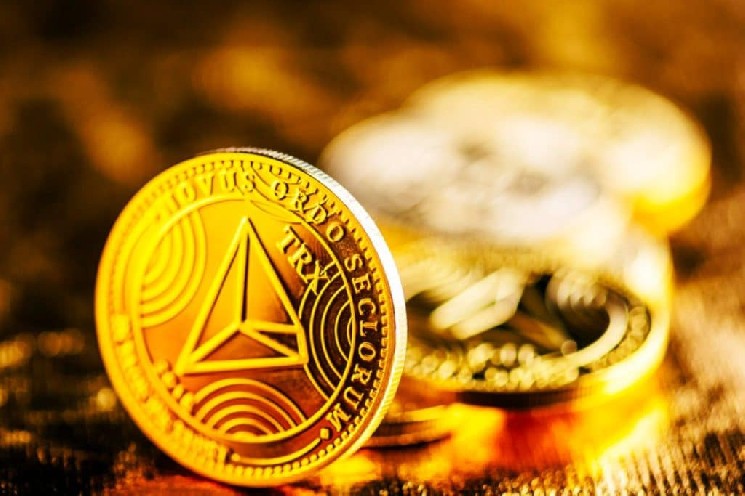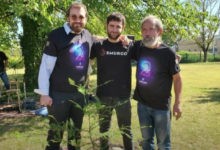Enigma around the founder of Tron

Tron founder Justin Sun recently spoke about a big play on Hong Kong and China, saying he was “optimistic” that one day cryptocurrencies might return to China.
Later, he also told Bloomberg that his free-market-oriented special administration region of Hong Kong is in “embrace crypto mode.” Much like Hong Kong based on the common law was the trial zone for free market capitalism for China, so regulated cryptocurrencies will take off first in Hong Kong and then move to the rest of China.
In all of this, where is Justin Sun’s money? And why has he kept some of his coins in Valkyrie‘s digital assets?
Summary
- The founder of Tron and the digital coins hidden in the US
- What does China have to do with the decisions of Tron’s founder?
- The issue of citizenship in China
The founder of Tron and the digital coins hidden in the US
As anticipated above, a significant amount of Tron founder Justin Sun’s digital coins are hidden in the United States, as was discovered in December by several sources, in the treasury of Valkyrie Digital Assets, where Sun is a major client.
To be specific, it appears that the money is in one of Valkyrie’s separately managed account (SMA) offerings, designed to give those more familiar with TradFi investment vehicles exposure to cryptocurrencies.
Hence, one wonders if Sun’s outsized holdings domiciled in Valkyrie are a way to mask what the market perceives as institutional demand for cryptocurrencies.
Indeed, in the opinion of many experts, it is odd that the founder of Tron is parking so much capital in a vehicle designed for boomer asset managers (or newcomers to the crypto world) who are uncomfortable with self custody to gain exposure to digital assets.
Through several other sources, it has come to light that Sun appears to be looking to allocate “some of its wealth in US holdings” and to support “the regulated growth of the cryptocurrency industry.”
What does China have to do with the decisions of Tron’s founder?
Apparently, Justin Sun’s decision may stem from conditions in China.
The country’s unpredictable legal system, which is happy to confiscate the wealth of dissidents, both real and alleged, has in fact resulted in the country’s rich stashing of money abroad for decades.
As soon as the British announced that they would return Hong Kong to the People’s Republic of China in the 1980s, real estate in Vancouver became the hottest commodity for the territory’s wealthy.
Moreover, Taiwanese who thought the island would be absorbed by China followed suit in the future. And when China emerged as a global power, creating hundreds of billionaires in the process, its elite bought North American real estate, creating multimillion-dollar hedges against China along the West Coast in the form of luxury apartments.
Even though a lot of dirty money has also flowed in, the legitimate media elite must feel vindicated as Beijing targets billionaires and those it believes have become too powerful.
Interest in Vancouver and other North American real estate has increased once again from Hong Kong residents, who fear that what little autonomy the territory has left will be removed in the coming years.
In any case, there are not enough sources or evidence to claim that the Tron founder has come into conflict with the law in China, even though it can be assumed. However, we do know that Sun abandoned his Chinese citizenship for various Caribbean and Malta passports. Now, he holds a Grenadian passport, which he acquired along with a position as a representative at the WTO for the small island nation.
However, the mood in Beijing can change quickly. Authorities are aware of what an effective antidote crypto is to capital controls. The cryptocurrency market in China is huge, although it does not officially exist on the mainland, to the tune of hundreds of billions of dollars. The founder of Tron represents an unambiguous success story for cryptocurrencies and his name is known throughout the blockchain market and industry.
The issue of citizenship in China
Although Sun is not a PRC citizen, this does not matter much to the country’s authorities. In fact, Beijing has a history of forcibly restoring citizenship for people it targets.
For example, Gui Minhai, a Chinese citizen born in Sweden, ran a bookstore in Hong Kong that contained many titles critical of the Chinese Communist Party. Thus, in 2015, he and his business associates, some based in Thailand and others in Hong Kong, disappeared.
It was later revealed that they were victims of extraordinary rendition to China and were charged with various crimes such as providing information to agents abroad. During this process, Gui’s Chinese citizenship was forcibly restored and her Swedish citizenship was cancelled.
So, if Sun ever finds himself a target of Beijing’s scorn, which is not out of the realm of possibility considering how the CCP goes after billionaires, his Grenadian passport will not help him much.
There is no indication that this will happen soon, but smart businessmen like Sun are always hedging their bets. Self-custody of wealth is not so secure when homes and offices can be searched, extraordinary rendition is on the table, and cryptographic keys can be forced to be handed over to the authorities.
If it really wanted to, the government in Beijing could easily force some Caribbean nations to give up holding companies that store cryptocurrency for the kinds of people who would find their names in the Panama Papers.
However, should that day come, $500 million of Justin Sun’s wealth will be safely behind the US legal system, locked in the Valkyrie treasury.






 Bitcoin
Bitcoin  Ethereum
Ethereum  Tether
Tether  USDC
USDC  TRON
TRON  Dogecoin
Dogecoin  Cardano
Cardano  Monero
Monero  Bitcoin Cash
Bitcoin Cash  Chainlink
Chainlink  LEO Token
LEO Token  Stellar
Stellar  Zcash
Zcash  Litecoin
Litecoin  Hedera
Hedera  Dai
Dai  Cronos
Cronos  OKB
OKB  Tether Gold
Tether Gold  Ethereum Classic
Ethereum Classic  KuCoin
KuCoin  Cosmos Hub
Cosmos Hub  Gate
Gate  Algorand
Algorand  VeChain
VeChain  Dash
Dash  Stacks
Stacks  Tezos
Tezos  TrueUSD
TrueUSD  IOTA
IOTA  Decred
Decred  Theta Network
Theta Network  Basic Attention
Basic Attention  NEO
NEO  Synthetix
Synthetix  Qtum
Qtum  Ravencoin
Ravencoin  0x Protocol
0x Protocol  DigiByte
DigiByte  Zilliqa
Zilliqa  Nano
Nano  Siacoin
Siacoin  Numeraire
Numeraire  Waves
Waves  Ontology
Ontology  Status
Status  Enjin Coin
Enjin Coin  Hive
Hive  BUSD
BUSD  Pax Dollar
Pax Dollar  Lisk
Lisk  Steem
Steem  Huobi
Huobi  OMG Network
OMG Network  NEM
NEM  Bitcoin Gold
Bitcoin Gold  Augur
Augur  Bitcoin Diamond
Bitcoin Diamond